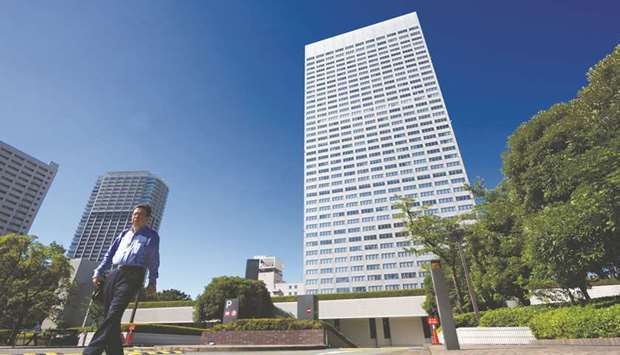The technology firm’s outstanding notes have been rising on progress in its plan to sell its memory business. But it will be hard for the company to sell more yen bonds now after last issuing debt in 2014, according to Asahi Life Asset Management Co and NLI Research Institute.
While Toshiba hasn’t said it’s looking to issue bonds again, it would likely need to regain investment grade first to do so. That’s because Japan has no junk bond market, and it has to convince investors that it can make steady profits without its chip unit, according to Asahi Life Asset and NLI Research. Japan’s Ratings & Investment Information could raise Toshiba from BB+, one level short of investment grade, if it becomes clear it can maintain solid finances, generate stable cash flows, and manage itself well.
Tokyo-based Toshiba may be able to issue bonds of up to five years if R&I raises its rating, considering Japanese investors’ hunger for yields, said Katsuyuki Tokushima, chief investment analyst at NLI Research.
“But I don’t think it can issue bonds of longer maturities, such as 10 years or 15 years,’’ until it convinces investors that it will still be doing well in the future, he said. “It would be an unnerving experience to buy such notes if there is no clear vision on where Toshiba is headed.”
Toshiba is working on a five-year plan to boost profits, as it will be deprived of a major source of earnings after the sale of the memory division, though it will raise ¥2tn ($18bn) from the deal.
To be sure, Toshiba is under little pressure to issue bonds now: it will have ¥1.1tn in cash in excess of debt once the sale is completed on June 1, according to its forecast. The company has made no decision yet on whether and when it will restart selling notes, according to spokesman Tomoyuki Numata.
Still, regaining a foothold in the debt market would be positive for the company because it’s good to have various funding channels at any given time, said Toru Murase, an R&I analyst. Toshiba was a frequent issuer of bonds until 2014, a year before its accounting irregularities came to light, according to Bloomberg-compiled data.
“If investors again become willing to buy its debt, that will be one crucial sign that the credit market is putting its faith in Toshiba’s recovery,” Murase said. Investor concern may linger over how the company will make money in the long term without its chip division. The unit, which Toshiba categorised as a “discontinued operation,” made ¥465.7bn in pretax income in the year ended March 31, according to filings. The entire firm’s pretax earnings for that year were ¥82.4bn, adjusted for discontinued operations.
“What will be left once they let go of the memory business?” asked Takahiro Oashi, senior fund manager at Asahi Life Asset. Toshiba’s governance is another concern even though the company has said it is working to strengthen it, Oashi said. “It’s a company with a global reach, and I used to think that it had to be doing what it was supposed to – and yet, it has caused such problems,” he said, in a reference to Toshiba’s accounting scandal. “I’m not quite sure where we should look at to make sure if its governance has improved.”
Japanese investors generally tend to avoid notes of issuers that have caused the public trouble, said Toshihiro Uomoto, chief credit strategist at Nomura Holdings. “Toshiba has become a subject of criticism,” he said. “Maybe it’s natural for some investors to hesitate to buy its bonds.”

